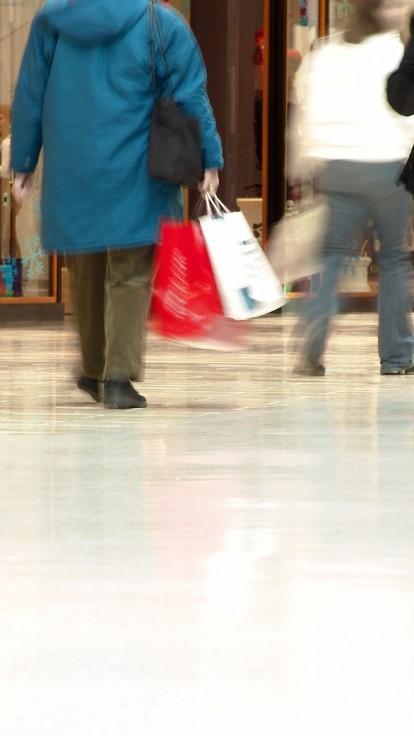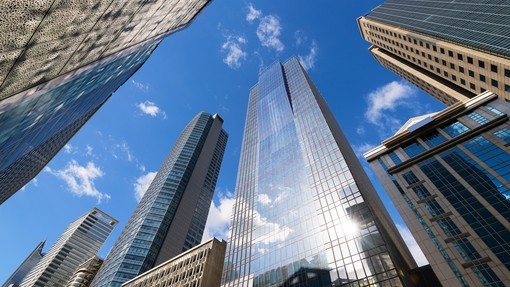Will the UK be ‘A Nation of Shopkeepers’ or just a ‘People of Customers’?

Details
In The Wealth of Nations (1776) by Adam Smith, he wrote:
‘To found a great empire for the sole purpose of raising up a people of customers may at first sight appear a project fit only for a nation of shopkeepers. It is, however, a project altogether unfit for a nation of shopkeepers; but extremely fit for a nation whose government is influenced by shopkeepers.’
While he probably could not have conceived of the development of ecommerce, which takes nothing from his point, the relatively rapid development of multi and omnichannel retailing in the UK has had a profound impact on the nation. The current pandemic has probably permanently changed our shopping habits.
There is a possibility now of significantly accelerated channel shifting and diversification because there appears to be increasing problems with physical stores and changing shopping habits:
- Landlords and tenants are going bust. The certainty of payment has fallen in some sectors (particularly retail) to the point where exposure to the sector is likely to discourage bank lending and pension investment in the future both for landlords and tenants, which will result in a reduction of both supply and demand for many physical stores. That will result in fewer and smaller ‘high streets’ with almost no department stores. This will diminish the physical retail experience
- Having seen the fragility of their existing channels and the opportunities of omnichannel retail, there is a stampede to multichannel retail (or for many, to jettison physical stores)
- Suppliers of non-branded goods (and well-known brands) having been burnt by retailers, have seen the possibility, security and cost efficiency of direct online selling
- Going out shopping may be less of a national hobby because it is less pleasant, more seasonal (more rain will mean fewer people will queue), more frustrating (to queue only to find what you want is out of stock), inconvenient, riskier, less necessary and, perhaps most of all, many people have replaced it with other activities and ways of socialising during the last 18 weeks. The threat (and media coverage) of a flare up or a second/third/annual wave is likely to reinforce this behaviour
- Many stores rely on selling at Christmas and seasonal holidays. Most of them are in months of less pleasant weather where queing will be less attractive, coughs and colds more prevalent, dreaded water droplets and humidity more abundant, immune systems are generally lower and people often feel more miserable. Without those seasonal holiday revenues many retailers will fail to pay rent on the January quarter-day, creating another wave of business failures
- More unemployment and a reduction in spending will focus minds on cost and physical stores will struggle to price match
- Face masks are unpopular but also make it harder to read people to close a face-to-face sale. They will cripple the cosmetics industry
- More people will work at home, reducing incidental shopping. Many will already be looking at a monitor or smartphone
- There seems to be no solution for business rate funding of local authorities. It will probably have to be replaced by a ‘sofa tax’ on homeworking if full rates relief is given to retail premises. That would be unpopular and difficult to administer
- Many employers are considering staff returning on shifts so as to allow for social distancing and reducing infection rates. Many shops will not be able to be open long enough hours to maintain the previous footfall that arose around usual working hours. Online businesses don’t generally need to ‘sleep’
- Localised flare ups resulting in temporary localised lockdowns means that cashflow predictions may be unreliable, staffing requirements could be unaffordable and stock movements restricted at any time. Building in the cost of that to an average retail outlet is unlikely to encourage investment in them
- The inherent risk of public travel to shopping centres, increased parking charges, increased congestion charges and reduced emission requirements will make shopping in a limited high street less attractive, resulting in less or displaced footfall with resultant winning or losing retailers. However, it will become increasingly difficult to predict where to put/keep a store and for how long that decision will hold good with the continuing speed of change. The risk of taking a lease will be higher
This, like every change, brings good and bad. Rapid and less predictable change gives greater opportunities and problems. This is going to be the retail ride of a generation. To paraphrase The Beatles, ‘All the lonely people [customers/shoppers/shops], where do they all belong?’ Wherever that is, retailers need to be present there, 24/7, not necessarily with shops and not necessarily based within the nation. Otherwise that ‘people of customers’ will buy elsewhere. The world is a big shopping mall now.
Some retailers will close. Others will thrive. All will have to change and adapt to some degree. Even thriving retailers must brace themselves for new market entrants, often with an aggressive ‘Wild West’ approach fuelled by inexperience and/or greed. There may be increased competition, particularly from offshore businesses trying to scale up without so much concern for geography. Supply chains may be attacked by competitors trying to assimilate and replicate existing businesses. Strategic and tactical poaching of staff is more likely. Technology will develop and retailers will have to invest wisely to keep competitive advantage. Will shoppers virtually meet their friends to shop on an online mall? The tax incentives for research and development and available capital allowances for tax purposes are significant.
Businesses need to protect their supply chains, staff, IP, brand, systems, financial resilience, agility and ability to avail themselves of the opportunities before them or that they make. Perhaps most of all, existing multi-channel retailers need to maintain their ‘head start’ in every way, as much as they can, from the pack stampeding behind them. They must remain careful, clever and committed.
Carpe diem with vigilance, agility and speed.
We have experience of helping clients protect, build and transform their retail businesses including managing their property assets, IP, staff, contracts, capital investment, shareholder value and developing businesses into multi and omni-channel retailers. We also help clients increase their business agility, resilience and speed of adaptation in this rapidly changing market.
If you found this article interesting you may want to read this related article written by Iain Donaldson in October 2017 in which he first wrote about the possibility of a working-from-home tax: ‘Should your sofa be rated as business premises?’






